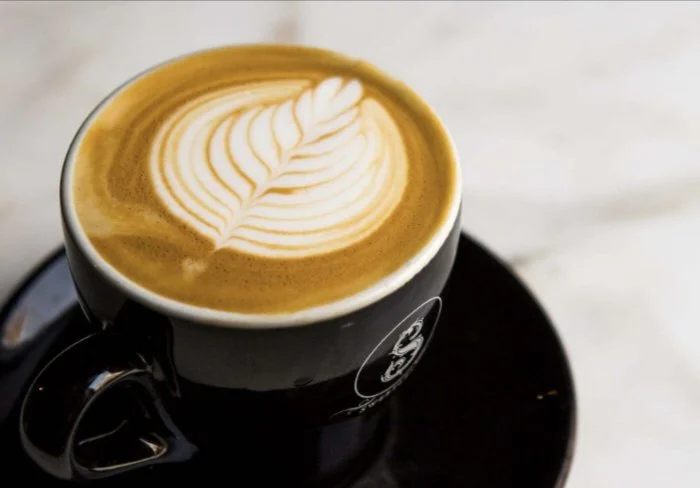Espresso is one of the most popular coffee drinks in the world. Many people love its strong, rich flavor. But some find it too bitter. So, is espresso naturally bitter? The answer isn’t simple. Bitterness in espresso depends on many factors, including beans, roast level, brewing technique, and personal taste.
In this article, we’ll explore why espresso can taste bitter, how to reduce bitterness, and how to enjoy a perfectly balanced shot.
What Is Espresso?
Espresso is a concentrated coffee brewed by forcing hot water through finely-ground coffee beans under high pressure. It has a thicker consistency than regular coffee and a layer of crema on top.
A well-made espresso should have a balance of sweetness, acidity, and bitterness. However, if any element is off, bitterness can dominate.
Why Does Espresso Taste Bitter?
Bitterness is a natural part of coffee’s flavor profile. But excessive bitterness usually means something went wrong in the brewing process. Here are the main reasons espresso might taste too bitter:
1. Over-Extraction
Over-extraction happens when water pulls too many compounds from the coffee grounds. This includes bitter-tasting elements like tannins. Common causes of over-extraction:
- Grind too fine – If the coffee is ground too finely, water flows too slowly, extracting too much.
- Brew time too long – Espresso should take 25-30 seconds to extract. Longer than that increases bitterness.
- Too much coffee – Using too much coffee in the portafilter can slow extraction.
2. Dark Roast Beans
Dark roast coffee beans are more bitter than light or medium roasts. The longer roasting process breaks down sugars and increases bitter compounds. If you prefer a smoother espresso, try a medium roast.
3. Low-Quality or Stale Beans
Old or poorly stored coffee beans lose their natural sweetness and develop a harsh, bitter taste. Always use fresh, high-quality beans for the best flavor.
4. Water Temperature Too High
Ideal brewing temperature for espresso is between 195°F and 205°F (90°C–96°C). If the water is too hot, it burns the coffee, creating a bitter taste.
5. Dirty Equipment
Coffee oils and residue build up in grinders, portafilters, and espresso machines. If not cleaned regularly, old coffee residue can make espresso taste bitter and burnt.
How to Make Espresso Less Bitter
If your espresso tastes too bitter, try these fixes:
1. Adjust the Grind Size
A coarser grind allows water to flow faster, reducing over-extraction. Experiment with grind settings until you find the right balance.
2. Shorten the Extraction Time
Aim for a 25-30 second shot. If it takes longer, your grind may be too fine, or you might be using too much coffee.
3. Use Fresh, Medium Roast Beans
Choose high-quality, freshly roasted beans. Medium roasts often have a better balance of sweetness and acidity.
4. Check Water Temperature
Make sure your machine is set between 195°F and 205°F (90°C–96°C). Too hot, and the coffee will taste burnt.
5. Clean Your Equipment
Regularly clean your grinder, portafilter, and espresso machine to prevent old coffee oils from affecting flavor.
6. Try a Different Brew Ratio
The standard espresso ratio is 1:2 (coffee to water). If your shot is too bitter, try a shorter ratio (like 1:1.5) for a milder taste.
Does Espresso Have to Be Bitter?
No! A well-brewed espresso should have a complex flavor with sweetness, acidity, and a slight bitterness. If bitterness overpowers other flavors, the shot is likely over-extracted or made with low-quality beans.
Many specialty coffee shops serve espressos with fruity, chocolatey, or nutty notes—not just bitterness. The key is using the right beans, grind, and technique.
How to Enjoy Espresso Without Bitterness
If you’re new to espresso, here are some ways to enjoy it without overwhelming bitterness:
1. Add a Little Sugar
A small amount of sugar can balance bitterness without masking espresso’s natural flavors.
2. Try a Cappuccino or Latte
Milk softens espresso’s bitterness. A cappuccino or latte blends espresso with steamed milk for a smoother taste.
3. Sip with Sparkling Water
Many coffee shops serve espresso with a side of sparkling water. Sipping water between tastes cleanses the palate and reduces bitterness.
4. Pair with Chocolate or Pastry
Sweet foods like chocolate or croissants complement espresso’s bold flavor and reduce perceived bitterness.
Conclusion
Espresso can be bitter, but it doesn’t have to be. Bitterness comes from over-extraction, dark roasts, or poor-quality beans. By adjusting grind size, brew time, and bean selection, you can make a smoother, more balanced espresso. If you’ve had bad experiences with bitter espresso, don’t give up! With the right techniques, you can enjoy a rich, flavorful shot with just the right amount of bitterness. Do you prefer your espresso bitter or sweet? Let us know in the comments!
Related topics:
How To Make Aeropress Espresso?
How to Make Shaken Espresso at Home?
What Drinks Can You Make with an Espresso Machine?


